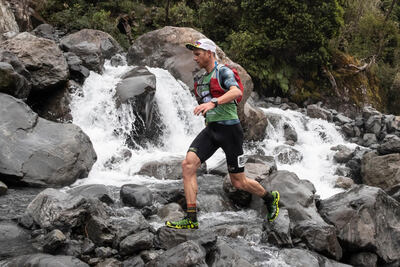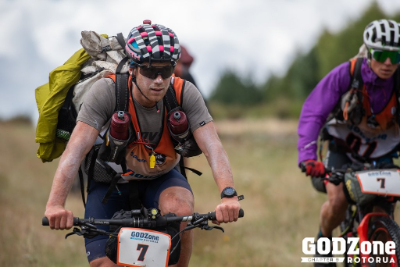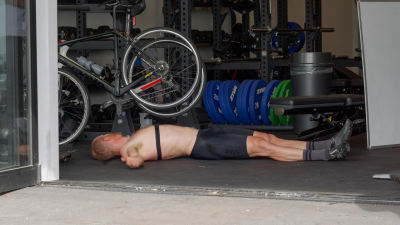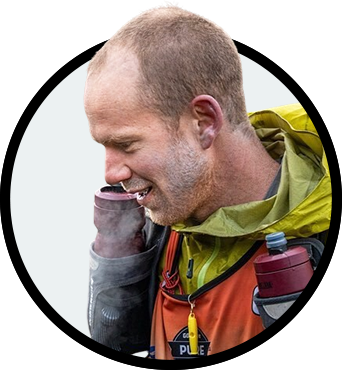By its very definition, failure is a word that provokes negative connotations of disappointment, frustration and resignation. It’s a feeling that most athletes know all too well when we fall short of a goal, especially one we've spent weeks, months or even years striving to achieve.
In the athletic world, anything other than success is too often seen as failure. And nobody is immune. The great Michael Jordan famously said, “Twenty-six times, I’ve been trusted to take the game-winning shot and missed. I've failed over and over and over again in my life”.
Failure is a stepping stone, a teaching moment and an opportunity to develop further towards a desired success. By no means does this suddenly make those moments where we fail to achieve a goal any less painful. Nobody chooses to fail and nor should we. We’re driven by a desire to perform at our best. Even better if we beat our annoying workmate to the finish line...
Defeats
As an athlete and coach, I’ve found that the most beneficial approach is recognising the place that failure has in any journey; the key is to persevere and not let it be final.
In fact, as I reflect on the latest chapter of my own sporting career, I’m beginning to recognise just how important a series of my own failures became in sending me towards what I consider the biggest achievement of my sporting life so far - becoming part of Emirates Team New Zealand in their quest to defend the most prestigious prize in world sailing; the America’s Cup.
Let’s take it back to February 2022 and my last crack at New Zealand’s favourite endurance race, the Coast to Coast. Having won it twice in the previous three years, I was desperate to finish on a winning note in my tenth and final appearance.
Instead, I suffered a torn tendon in my shoulder a few weeks before the race thanks to a poorly executed kayak stroke, and then a broken ankle on race day as I muscled my way through to a runner-up finish. I was left to digest my failure to win my last race with the prospect of a few months of rehabilitation. I’d be lying if I said I didn’t sink into a dark patch of despair and self-pity.
Somewhere along the rigorous journey to rebuild my shoulder and ankle, I felt compelled to place a performance goal into the mix. Old habits die hard. I’d spent so long chasing race goals that I felt my best chance of bringing my body back together properly was to rely on the extra motivation that having an event lined up would offer.
Cue IRONMAN Wales in September 2022. I’d always wanted to race Tenby and it seemed like a good timeline to get my body and fitness back up enough to be competitive. In the end I made the start line and enjoyed my race experience but walked (almost literally) away with a career-worst 3.17 marathon, fading from 4th to 8th.
I knew it would be my last IRONMAN race so decided to just be grateful for the experience and not dwell on the result as I flew back to New Zealand to prepare for my last multisport race as an elite competitor - The Motu Challenge in NZ’s North Island (the second biggest multisport event in the country behind the Coast to Coast).

Injuries
Doing two 12-hour flights to get home from Europe is fairly arduous, but on this occasion it was also enough to lead to the development of a blood clot (DVT) in my left leg. I was immediately placed on blood thinners which carried a risk of further issues if I ended up crashing whilst mountain biking as part of my preparation for the Motu Challenge.
By this stage, it was late September and I’d been invited to trial for a cyclor role with Emirates Team NZ in December. The role of a cyclor is to pedal on board the race boat in order to provide hydraulic pressure, so the sailors can operate the sails. I was very keen to trial given I felt it suited my skillset and I was ready to retire from endurance sport. The timing seemed perfect.
In the Motu Challenge, I was again beaten into second place in a race I expected to win. Perhaps the time lost to ankle rehab and the blood clot travelling home from Europe were partly to blame, but I knew I’d also lost the drive to perform when it really mattered in endurance races.
The end of my multisport career had felt very anticlimactic, but I had just seven weeks to prepare for the rigorous cycling trials that I was invited to attend for Emirates Team NZ. There was no time to dwell on the disappointment.
Two weeks into my preparation, I was busy trying to quickly turn my body into a watt-producing machine when on one of my training rides I fell from my mountain bike and was knocked unconscious.
I was riding alone at the time and have no recollection of the crash, but luckily I was found by two fellow riders who made sure I was safely transported to a medical centre. The risk of brain bleed was high given I was still taking blood thinners but luckily I was cleared of that and sent home to rest.
With little more than a month until the team trials I was forced to lie inside, curtains drawn and give my brain as much rest as possible. I wasn’t allowed to watch or listen to anything, daylight hurt my eyes and the headaches were excruciating. I was slowly bidding my prospects of a successful trial goodbye.

New challenges
Thankfully, I was able to recover and get back on an indoor bike in time to get some final practice sessions in before traveling to Auckland for the team trials.
I remember sitting in the Emirates Team NZ gym waiting for my first set of fitness tests and reflecting on the year I’d had. I still vividly recall the moment that the gratitude started to creep into my system minutes before I was due to swing a leg over the Wattbike and push myself to the limit.
I felt gratitude for the endurance career I’d had. I felt gratitude towards my body for its ability to heal itself from torn shoulder tendons, broken ankles, blood clots and concussions.
I felt gratitude to be one of the athletes invited to trial for one of our country’s most successful sports teams. I didn’t think I would be successful in making the team, but I couldn’t help but feel incredibly proud of myself.
All of the setbacks I’d experienced through the year had not stopped me making it to this very moment. I felt empowered to perform, given pushing myself hard on the bike felt like a privilege after everything I’d been through leading up.
Gratitude is an incredibly powerful ally and sometimes failure is the greatest catalyst to it. When we fail to achieve something, it can enhance our desire, appreciation and gratitude towards the prospect of still achieving that goal in the future. Sport had taught me this. My sole ambition became putting my best performance forward.
The testing process itself remains one of the toughest things I’ve done. After both the main fitness tests, I was left crippled on the floor writhing in pain as my heart rate and breathing slowly returned from dizzying heights. It was a good feeling to walk away knowing I had at least shown my capabilities. If I wasn’t selected, I could be safe in the knowledge I simply wasn’t good enough.

It transpired that I was good enough as I was selected to form part of the ‘power group’ of athletes that will now be pedalling on board Emirates Team NZ’s racing vessel in the 2024 America’s Cup defence in Barcelona.
Be 'antifragile'
The moral of this slightly long–winded story, if you have persevered in reading this far, is that failure is never final unless you choose for it to be. At any stage during my year, I could have given up. Injuries, race results, wavering motivation and changing priorities were all reasons I could have chosen to give up on sport.
But we never know what opportunities lurk behind the next corner and for me it was something as life-changing as the situation I now find myself in. I now get to train in a high-performance team environment and I've never enjoyed training as much as I do right now.
You may choose to do a sport as a way to help supplement your pursuit in a career, or provide an example to your family and friends. In the end it doesn’t matter what your goals are, it only matters that you’re brave enough to pursue them knowing failure is an inevitable part of the script.
When I tell the athletes I coach that ‘we either win or we learn’, I’m speaking from experience. Any of the achievements I now reflect on with most pride, were afforded to me by the learnings and progressions offered by failure.
With a growth mindset and an openness to be vulnerable to failure, it’s quite remarkable what we can achieve when we’re able to place failure into a context that empowers us to benefit from it.
Much like Nassim Taleb’s analogy of hypertrophy (muscle growth) in his book ‘Antifragile’, when we place uncomfortably heavy loads on a muscle regularly, it grows stronger and more resilient to such loads. We can choose to be fragile by allowing failure to be final and abandon our mission.
We can choose to be robust and avoid opportunities to fail by limiting how much challenge we expose ourselves to (e.g. choosing a shorter distance event or competing against less competitive opposition).
Or we can choose to be ‘antifragile’ by exposing ourselves to situations that present risk of failure, whilst being ready to use such moments to learn, improve and continue on our way to achieving success.
